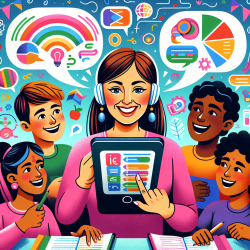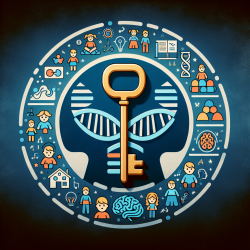The rapid advancement of technology has transformed countless fields, including education and healthcare. In the realm of speech-language pathology, innovative software and digital tools are revolutionizing how therapists deliver services, making therapy more accessible, efficient, and engaging for clients. A prime example of this technological evolution is the Screen Doors software, a digital resource that has shown considerable promise in enhancing therapeutic outcomes.
Screen Doors is an on-screen keyboard emulation program designed for individuals with limited physical mobility. It allows users to perform tasks on a computer using predictive text, which can significantly speed up communication for those who rely on alternative methods. This technology not only empowers clients to communicate more effectively but also opens up new avenues for therapy and learning.
One of the key benefits of Screen Doors and similar technologies is their ability to adapt to the unique needs of each user. Customization options enable therapists to tailor the software's settings to match the specific requirements of their clients, making therapy sessions more productive. Moreover, the predictive text feature of Screen Doors can be a valuable tool for language development, helping clients to expand their vocabulary and improve sentence structure.
However, the advantages of technology in speech-language pathology extend beyond individual software solutions. Online therapy platforms, such as TinyEYE, are making it possible for clients to receive high-quality therapy services remotely. This is particularly beneficial for individuals in underserved areas or those who have difficulties accessing traditional in-person therapy. Online platforms can offer a range of services, from direct therapy sessions to consultations and support for parents and caregivers, thereby ensuring continuity of care.
Despite these advancements, the integration of technology into speech-language pathology is not without challenges. Issues such as ensuring the privacy and security of online therapy sessions, as well as providing adequate training for therapists to effectively use new technologies, are paramount. Additionally, there is a need for ongoing research to fully understand the impact of digital tools on therapeutic outcomes and to identify best practices for their use.
In conclusion, technology holds significant potential to enhance speech-language pathology services. Software like Screen Doors and online therapy platforms are just the beginning of what's possible. As we continue to explore and integrate these tools, we can look forward to a future where access to speech-language therapy is more inclusive, engaging, and effective. Embracing technology is not just about keeping up with the times; it's about unlocking new possibilities for growth and learning in the field of speech-language pathology.
To read the original research paper, please follow this link: Screen Doors.










